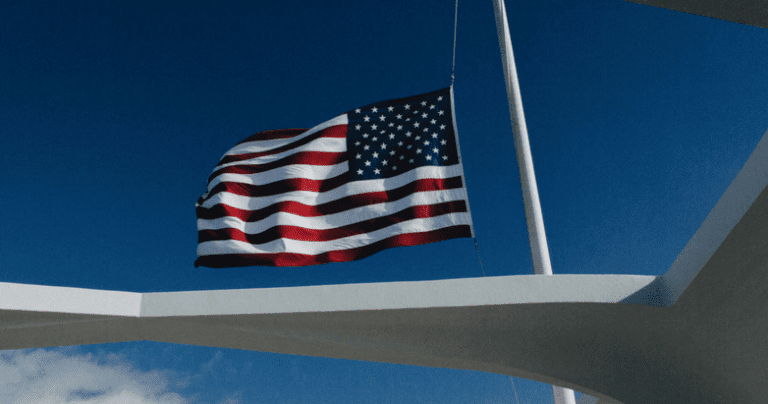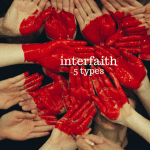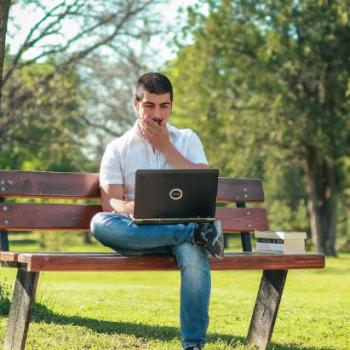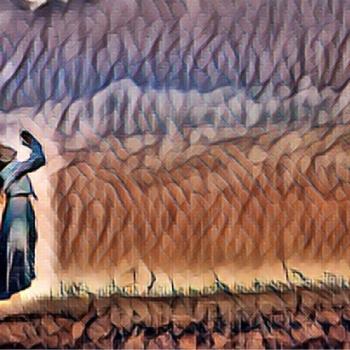
I woke up this morning and within minutes I became aware of what had happened in Las Vegas. It was a terrible tragedy, a case of domestic terrorism, the largest mass shooting in modern US history, we were told.
I thought of all the beautiful souls who had just lost their lives. I thought about the physical, emotional and mental trauma of all those who were injured. I thought about the bravery of those who didn’t stand by but rather risked their lives to help others. I thought about the thousands of people personally impacted by this tragedy.
It pulled me into a deep sense of sorrow. I couldn’t shake it—I still haven’t.
Earlier, I tried to write something on Twitter and Facebook. I wrote about how, in my home country of Iceland, 60% or more of the people own shotguns or rifles (not handguns or semi-automatic rifles) and yet there are very few murders there, and mass shootings are non-existent. I made a plea to all politicians to put aside agendas and come together to fix this. This is not normal, I wrote, and should not be normal.
And yet, I saw people digging into their ideological trenches and getting ready to do battle.
“This is not the time to talk about gun control,” one side said.
“This is exactly the time to talk about gun control,” the other side said.
“You will not infringe on my Second Amendment rights.”
“We need tougher gun control laws.”
“Hands off, you PC Liberal!”
“Gun Nut!”
And off it went.
No one was speaking to the other.
Everyone was launching insults at the other.
(When was the last time you insulted someone until they agreed with you?)
Watching it unfold made me sadder, if possible.
A quote from Rabbi Hillel flashed through my mind:
“If I am not for others, what am I? And if not now, when?”
I was searching for answers, wanting to be for others, wanting to do something now. During an exchange with another person on Twitter, it dawned on me. We need to apply some of the lessons learned from the interfaith movement to this dialogue. We need an interpolitical approach.
Do You Care Enough to Seek Common Ground?
First, here is the question that the whole country faces at this moment: Are reoccurring mass shootings in America acceptable or not?
If they are not acceptable, then we must do everything, yes, everything in our power to change course. Both sides must come together with their best ideas and find a compromise that will actually work. This is solvable. Other countries have done it.
But before we can solve anything, we have to talk to each other.
Yes, talk!
It’s a novel idea, but hear me out.
Principles to Be Applied to Interpolitical Dialogue
Scarboro Missions developed ten principles for interfaith dialogue, several of which can be applied to interpolitical dialogue. Here are seven of them (click here for the entire list).
One, the primary purpose of dialogue is to learn. You have to ask, what are the hopes and fears of those who oppose you, and why do they believe the way they do?
Two, dialogue must be a two-sided project. Both sides must want to solve this, even if they differ in their approach.
Three, each participant must come to the dialogue with honesty and sincerity. We must honestly and sincerely want to decrease further carnage.
Four, each participant must come to the dialogue with no hard and fast assumptions as to where the points of disagreement are. Generally speaking, we are too quick to assume that we know what the other side believes. We must approach the task with an open mind.
Five, dialogue must take place between equals, both must come to learn from each other. If we are to solve this, we must see each others as equals.
Six, dialogue can only take place on the basis of mutual trust. We trust that the other person is sincere in their interest to solve this matter.
Seven, both/all participants must be at least minimally critical of themselves and their own views. This requires an open mind and the willingness to say: “I might be wrong.”
I am not saying that any of this is easy, but we have to do something different. Even if only a few people started doing this, it would make a difference and cause a ripple.
You can be one of those people.
Our Shared Humanity
When tragedy strikes, those who are close by are usually quick to lend a helping hand. We have seen this in Texas, Florida, Mexico, and Puerto Rico recently, due to natural disasters, and we saw it in the Las Vegas massacre last night. No one stopped to ask another person for their religious or political affiliation. People just helped each other.
We must be willing to do the same in a larger context. We must be willing to put aside our ideology and focus on our shared humanity.
I have lived in this country—that so graciously accepted me a naturalized citizen—since 2010 and I have seen far too many mass-shootings take place since then.
And like clockwork, right on the heels of those events, I have seen many cycles of the same obstinate behavior from both sides.
That is no longer working.
We need new behavior.
We need interpolitical discourse.
We need solutions.
Gudjon Bergmann
Author & Interfaith Minister
Picture: Pexels.com CC0 license












